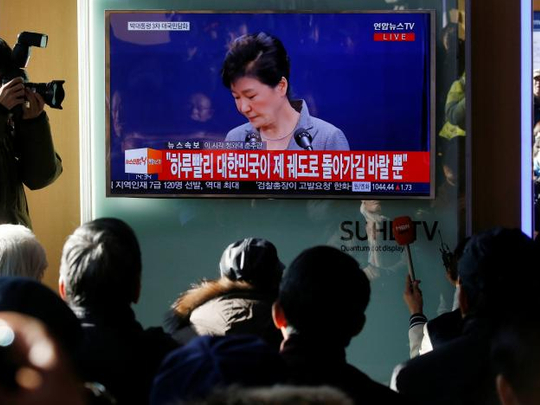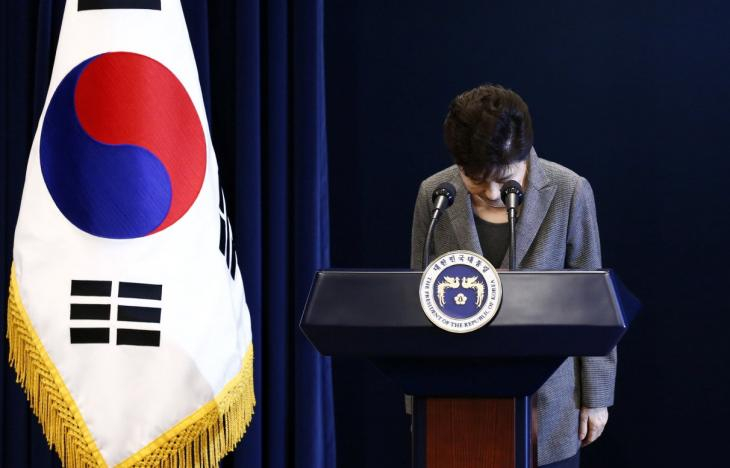
Seoul: South Korean President Park Geun-hye on Tuesday asked parliament to decide how and when she can give up power over an influence-peddling scandal, taking the country's political crisis deeper into uncharted terrain.
The main opposition Democratic Party rejected Park's offer, calling it a ploy to escape being impeached, and said it would continue efforts to bring an impeachment motion in parliament, which they have sought to do as soon as Friday.
No South Korean president has failed to complete a single five-year term since the current democratic system was implemented in 1987.
"I will leave to parliament everything about my future including shortening of my term," Park said in a brief televised speech.
Her dramatic maneuver puts the burden of resolving the political crisis on parliament, which has been controlled by a coalition of opposition parties since Park's conservative Saenuri Party unexpectedly lost its majority in April elections.
If Park resigns or an impeachment vote in parliament is upheld by the Constitutional Court, an election must be held in 60 days to nominate a president to serve a five-year term, with the prime minister leading the country in the interim.
That short time frame could leave the main political parties looking to buy time in order to coalesce behind presidential candidates, and political analysts said it may take months for parliament to agree on an exit plan for Park.
"I will step down from my position according to the law once a way is formed to pass on the administration in a stable manner that will also minimize political unrest and vacuum after ruling and opposition parties' discussion," Park said, her voice firm.
Park Kwang-on, a Democratic Party lawmaker, said it looked like she was trying to stall proceedings.
"She is handing the ball to parliament when she could simply step down," he told Reuters.
"She is asking parliament to pick a date for her to resign, which she knows would lead to a discussion on when to hold the presidential election and delay everything."
Park, 64, had apologized twice previously but until Tuesday resisted mounting public calls to quit. Her term is scheduled to end in February 2018.
"She doesn’t want the parliament to impeach her and she doesn't think that the parliament can soon reach an agreement, so she is making things complicated and trying to shift some of her blame to the parliament," said Shin Yul, a professor of political science at Myongji University.
Rock-bottom rating
Some lawmakers from Park's Saenuri party had asked her to resign under an agreement that would allow her to leave office with some dignity.
On Saturday, hundreds of thousands of South Koreans rallied for the fifth weekend in a row, calling for Park's resignation. Organizers said the crowd totaled 1.5 million, while the police estimated the crowd at 260,000.













